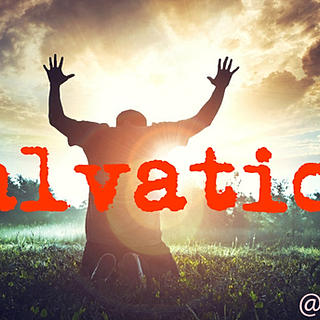African Union Catastrophic Failures
- Gerald Mcankrah
- Aug 15, 2023
- 4 min read

Advertently, the formation of the African Union (AU) as the Successor of Organisation Of African Unity (OAU) on the 9th of September 1999 and established in 2002 served as the driving force and hope for Africans in reinstating continental peace and further economic and political integration for the continent. Its predecessor the Organisation of African Unity (OAU) was the manifestation of the pan-African vision for an Africa that was united, free and in control of its own destiny. The birth of the AU served as a necessity in reference to the extinguishing values of the OAU and the birth of the new.
Structure wise, the OAU began as one entity whereas the AU has many integrated subdivisions such as: African Economic Community and building other structures, consists of: the Assembly (determines common policies); the Executive Council (coordinates and makes decisions on common policies); the Pan-African Parliament (implements policies); the Court of Justice (ensures compliance with the law); the Commission (the secretariat); the Permanent Representatives Committee (assists the Executive Council); the Specialised Technical Committees (assist the Executive Council in substantive matters); the Economic, Social and Cultural Council; the Peace and Security Council (makes decisions on prevention, management and resolution of conflicts); and the Financial Institutions (consisting of the African Central Bank, the African Monetary Fund, and the African Investment Bank).
The AU epitomises the growth of Africa and the new African mindset in which we learn about in this article. It has helped remake dominant ideals in African society by adhering to the demands of the African political class and reverting antiquated ones. The AU has a plethora of accomplishments ; it has been successful in deploying peacekeeping missions to various counties in Africa e.g. the African Union in Somalia (AMISOM) has been efficient in stabilising the country and reducing the influence of terrorist group Al-Shabaab. In addition to this, the economic integration that it has successfully promoted among African countries, for instance the African Continental Free Trade Area (AfCTA) was launched in 2018 with the goal of creating a single market for goods and services in Africa.
Although this is important, it is more pertinent to suggest that the AU is highly fragmented and can also be perceived as too ambitious and is deviating from truly connecting with ordinary Africans. It is credible to argue that the union was over ambitious due to the 2020 peace treaty in which they ensured an end to armed conflict and failed to achieve; statistically it even resulted in an increase. It is in the African Union’s interest to prove its ability to carry out peacekeeping operation’ – Suleiman Awad.
The African union has promoted a false idealisation of ‘peace’ but what is peace? Our perception of it is solely built on taught principles that peace is a state of tranquillity or quiet: such as freedom from civil disturbance –however it can be argued that nothing exists without its opposite; God/Satan, Light Darkness etc. Without evil there is no good, without light there is darkness, without accepting the existence of chaos there is no peace which further evidences the false dichotomy between them. The AU promotion of this elusive peace is destructive as is creates again a false sense of hope for Africans which juxtaposes the intent behind its formation as it is intrinsically linked within it. The presence of chaos does not mean the absence of peace- peace must be created amidst this chaos. It has failed to resolve conflicts such as the lack of action in the ongoing conflict in South Sudan which contextures with the Human Rights issues. The African Union has also been criticised for its lack of democratic governance, human rights violations, and corruption within member states.
Many African countries continue to experience authoritarian rule, voter suppression, and electoral irregularities, with little or no action taken by the AU to address these challenges. The recent military coup in Mali is a stark reminder of the fragility of democratic governance in Africa and the AU’s limited capacity to promote democracy on the continent. The AU has also been further criticised for its inaction e.g. it has been accused enough for not doing enough in addressing the human rights abuses in Zimbabwe. This inconsistency has severely undermined its credibility as an authority on good governance, democracy, and fighting corruption on the continent.Lastly, the African Union has failed to effectively engage with its citizens, particularly youth and women, in promoting its vision of a peaceful, prosperous, and integrated Africa. The organisation is perceived by many as elitist, bureaucratic, and disconnected from the aspirations and needs of African people. The AU must leverage digital technologies and social media platforms to engage with citizens and ensure their active participation in shaping the organisation’s agenda peaceful, vibrant, and united Africa.
In conclusion, the African Union has made some progress towards its goal of promoting peace, security, and economic development on the continent. However, the organisation has also faced several challenges, including conflict resolution, economic integration, democratic governance, and citizen engagement. The AU must address these failures and work cooperatively with member states, civil society organisations, and development partners to fulfil its mandate and realise its vision of a United Africa.

Comments